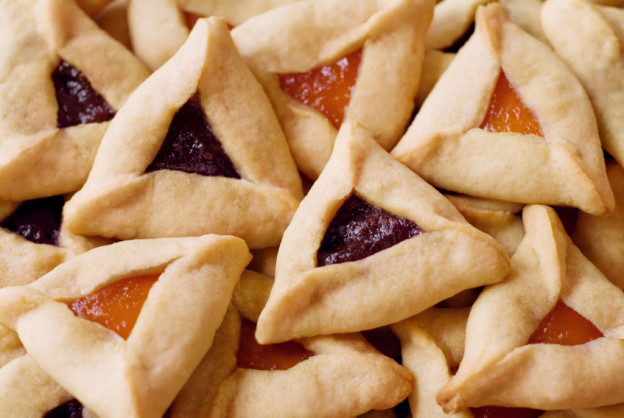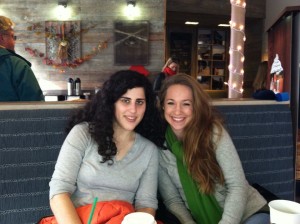Purim is coming up next week! You may be very familiar with the biblical story of Queen Esther, but since many Christians are less familiar with the Jewish traditions surrounding Purim, I asked my good friend, Lea Dickinson, to write up a guest post about this special holiday.
For those of you, who have never heard of Purim or have been curious to learn, here are five points to give you a quick overview!
- Purim, like many Jewish holidays, celebrates God’s preservation of the Jewish people. An ancient holiday that is still being celebrated by Jewish people this very day, Purim commemorates the freedom of the Jewish people in Persia from destruction. Haman, an evil man, plotted to destroy the Jewish people. If it weren’t for Esther’s bravery and her Uncle Mordechai relaying the message to Esther to go to the King, the Jewish people would have been wiped out, much like the Holocaust. We celebrate Purim because we are thankful that we were not annihilated and that God sustained us.
- Jewish holiday – Jewish calendar. Purim is celebrated every year on the 14th of Adar, which is a Jewish month. On the Gregorian calendar, the date of Purim changes, but on the Hebrew Calendar it never changes. As it happens, this year Purim lands on March 23-24, the same week as Easter, even though you might be celebrating Passover at your church!
- “The whole megillah.” It is traditional to go to the synagogue for a reading of the whole book of Esther, or as we call it, the Megillah, (which literally means “scroll”) on Purim. It is also traditional as one reads to loudly “Boo” the name of Haman and to shout “Yay!”, when the names Mordechai or Esther are read. The reason we do this is to blot out the name of Haman. Try it with your family! It’s fun!
- Purim is sometimes called the Jewish Halloween, but it’s meant only in the sense of wearing costumes. Purim is a time of celebration. And what better way to celebrate than dressing up? Children and adults alike will dress up as one of the characters mentioned in the book of Esther, and those who are less traditional may wear any kind of costume.
- Hamentashen! It’s not a celebration without food! At Purim, we eat delicious hamentashen, which are cookies in the shape of a three pointed hat (said to be Haman’s hat, or ears, depending on who you talk to) that are filled with a filling of choice. This is a traditional dessert that is always eaten on Purim, and it’s very easy to make! Follow this link for Carissa’s family recipe and try it for yourself! And if you have a Jewish friend, they would be delighted to receive a basket of hamentashen from you next week! Happy Purim!
Lea Dickinson has a Bachelor’s degree in International Relations, with a minor in Jewish Studies and Islamic Studies from San Fransisco State University. She and her husband, Mikael, are Jewish believers in Jesus and are passionate about reaching fellow Jewish people with the truth of Jesus the Jewish Messiah. She currently serves as the Evangelistic Coordinator at Shema Yisrael Messianic Congregation in Michigan.



